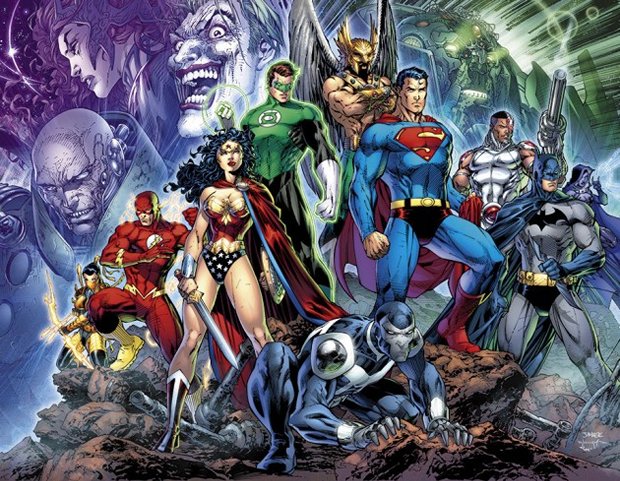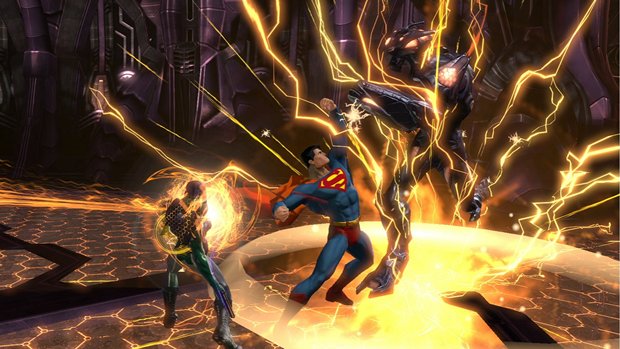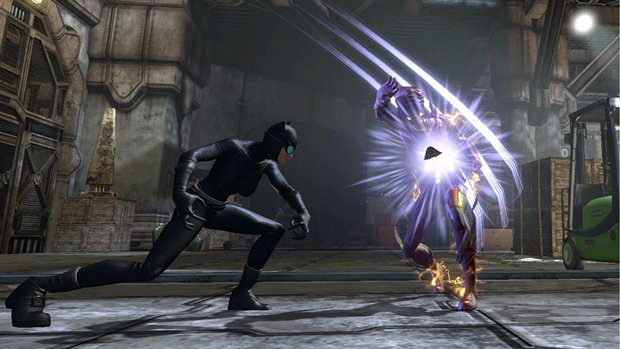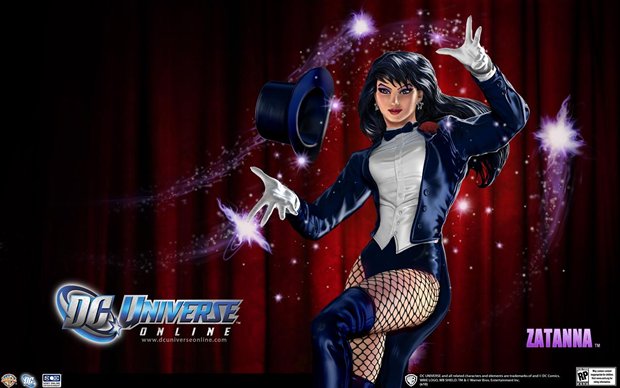DC Universe Online: We talk post-launch with Jim Lee and Marv Wolfman
Celebrated comic creators involved in the title share their thoughts on the title
When DC Universe Online was first revealed years ago, some wondered if the superhero MMO set in the mythic continuity of DC Comics was too ambitious. But developers Sony Online Entertainment got off to a great start with DCUO by involving writers and artists that were instrumental in crafting the DCU into what it is today. Now that the game’s out and the servers are awash with would-be Batmen and Lex Luthors, we conversed with a couple of those creators to get theirthoughts of the final product.
Jim Lee has been involved in comics for more than 20 years, and his career has been a strange ride. He exploded on to the scene as a superstar artist on Marvel’s X-Men comics, and he was instrumental in making the already popular mutants the household name they are today. Not long after that he went independent, helping form Image Comics along with other popular creators of the day, and he eventually sold off his chunk of that empire, WildStorm Comics, to DC. Soon he was doing best-selling and critically acclaimed runs on Batman and Superman, and very recently was given an executive position at the newly renamed DC Entertainment. We checked in with him pretty soon after DCUO’s launch, inquiring about how he touched the years-in-the-making title.
Special thanks to Brett Elston and Tyler Nagata for their assistance

GamesRadar: How did you become involved in DCUO and how early in the development did that involvement begin?
Jim Lee: I was pretty much involved from day one. When I heard the idea was going around for an MMO set in the DC Universe I instantly said I've got to be involved. I love MMOs, I love gaming, and obviously I love the DCU. I felt I could really contribute something on a creative level and maybe some of the other people at DC couldn't because MMOs are different than your average game and there's a different understanding of what makes them successful, and what really makes them tick. So I've been there since day one and fortunately I've been paired up with Sony Online Entertainment, and they've been fantastic from the start. They gave me a crash course in how these games are put together, the vernacular, it's actually pretty amazing.
GR: It must be pretty different than working with a writer on a comic script.
JL: It's a completely different experience. You're working with a team of people so there's not only a creative aspect but a managerial aspect to it. There's some creative direction to trying to teach people your art style and harness all these different abilities, whether they're conceptual artists or 3D modelers, and then to pull it all together to create one consistent world. When working on a comic with one writer you're the guy creating everything that's on that page so they're almost 180 degrees apart in the creative process.
Sign up to the GamesRadar+ Newsletter
Weekly digests, tales from the communities you love, and more

GR: You have a very distinct style, you can see a picture and say, “that’s Jim Lee.” Did that affect how you and the team approached the world design?
JL: It’s pretty hard creating that style in a 3D space. Part of the process was working with the other artists and teaching them how I construct faces, how I construct figures, like the space between the eyebrows, the portions of the eyes. I did a lot of simple drawings where I’d illustrate and make notations on the side. As they created the 3D models, I'd see them and I’d turn it around and make minute notes here and there to teach them something I know instinctively. At first there was a lot of back and forth, but by the end they were just turning in models and I’m like, “great, awesome!”
To answer the other part of your question, when we first started, me and the team just did the concept art regardless of the 3D form, and then they’d give us feedback. “You can’t use loincloths this long, it interrupts the run-cycle,” that kind of stuff. So you start having to edit with that in mind.

GR: Now that you’re a Co-Publisher at DC Entertainment, did that make it easier or harder to work on the game?
JL: That change happened just last year, and there were some things I was able to push through after that transition happened, just in terms of how some brands and characters are used. So we were able to put some stuff in the game that was at first off the table. It was a boon to the game that I came into that position last year and it couldn’t have come at a better time
GR: Any characters you pushed for inclusion that made it in?
JL: Not so much the characters but the costumes. With a character like Zantana, some people were opposed to the magician look with fishnets and a top hat. I said, “This is what people expect of this character and if you don’t put it in there’s going to be criticism that will dwarf any positive thing said about the game, so we have to do this.” Just stuff like that.

You know when you look at the DC Universe, there’s been so many different costumes and looks over the decades, it’s hard for someone who’s not as familiar with the DCU on a fan level to prioritize which version is the most important one to the fan base. They’d have problems with which versions of costumes fit together continuity wise. That’s where I was able to step in and make some contributions.
Henry Gilbert is a former GamesRadar+ Editor, having spent seven years at the site helping to navigate our readers through the PS3 and Xbox 360 generation. Henry is now following another passion of his besides video games, working as the producer and podcast cohost of the popular Talking Simpsons and What a Cartoon podcasts.



